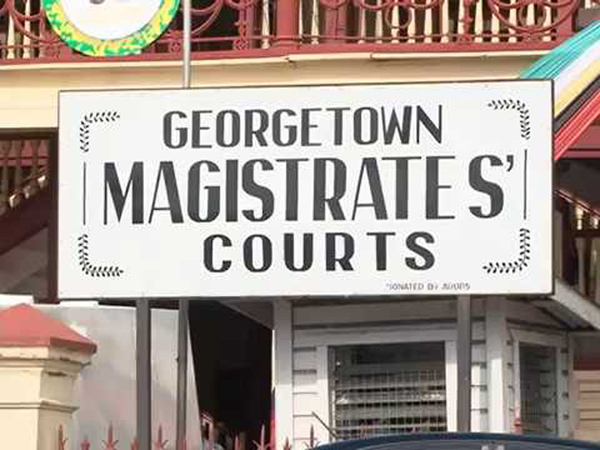A drug treatment court is set for launch on Monday and those persons with substance abuse disorders will have a chance for rehabilitation rather than being sent off to prison.
The court, a novel development for Guyana, will be launched at the Georgetown Magistrate’s Court.
A release from the Supreme Court of Judicature follows:
Introduction
In Guyana drug addiction has become a societal and public health issue. Many persons are suffering from drug addiction. Many drug addicts commit minor offences to support their habits. These persons need assistance to overcome their addiction so as to become productive members of our society. Drug Treatment Courts are part of the solution to help these persons.
What is a Drug Treatment Court?
A Drug Treatment Court is a specialized court for persons with substance use disorders such as drug addiction. It provides an alternative to imprisonment. Rather than imprisoning these persons, this court gives them the opportunity to enter long-term treatment and agree to court supervision. It is a problem solving court that seeks to address the needs of each participant in the court program, including their drug use and the criminal behavior associated with it.
How do Drug Treatment Courts Work?
A Drug Treatment Court has been established at the Georgetown Magistrates’ Court on October 21st, 2019 as a pilot project. To be eligible for Drug Treatment Court, a person must be an adult who has been charged with a minor criminal, drug, or related offence, must be likely to re-offend, and must be experiencing serious substance use disorder.
In the court in Guyana, a person who meets the eligibility requirements must have pleaded guilty to or been found guilty of their charge(s). Their sentences would be deferred while they participate in the Drug Treatment Court program. In many cases participants who successfully complete the Drug Treatment Court program may receive a light sentence such as a fine or community service, or have their underlying criminal charge dismissed or have no conviction recorded.
Persons are given an opportunity to voluntarily enter the court program and undergo a four phase treatment plan, supervised by treatment providers and a magistrate. Participants are rewarded for maintaining their treatment plans and sanctioned for failure to meet their obligations.
Upon successful completion of the program there is a graduation ceremony by which time the participant will be rehabilitated and prepared for reintegration into their community where they can meaningfully contribute to society.
If a participant fails to complete the program, his or her case will be processed as normal in the traditional criminal justice system.
The Drug Treatment Court program requires a lot of commitment from participants and dedicated case supervision from the drug treatment court team. It may require participation for many months to help the person maintain long-term recovery strategies. There are frequent and random drug tests so as to ensure that persons stay clean. Participants must attend court frequently so they can be monitored and encouraged to make and maintain their recovery.
The program is designed to give structure to participants’ lives and to support their recovery. Participants are rewarded for maintaining their treatment plans and sanctioned for failure to meet their obligations. Participants are not alone in their steps to recovery from their drug addiction. Members of the court help participants in their progress towards recovery and hold them accountable for lapses in improvement. Unlike traditional court, Drug Treatment Courts take a collaborative approach to justice. The Magistrate, Prosecutor, Defense Attorney, Social Worker, Police Officer, Treatment Provider and Mental Health specialists work together with each participant to seek solutions for his or her benefit.
Are Drug Treatment Courts effective?
Drug Treatment Courts are operating in many countries worldwide including in Jamaica, The Bahamas, Trinidad & Tobago and Barbados with great success. They have been effective in getting people into treatment and assisting them in remaining clean. Participants who complete Drug Treatment Court programs are significantly less likely to be arrested again, compared to those who are sentenced with traditional punishments. Drug Treatment Courts are also cost beneficial since it is costly to imprison persons. These courts enhance public safety by reducing crime, save money and most importantly, restore dignity to individuals and their families, and benefit communities and society as a whole. They are an important tool in the fight against drug abuse.










